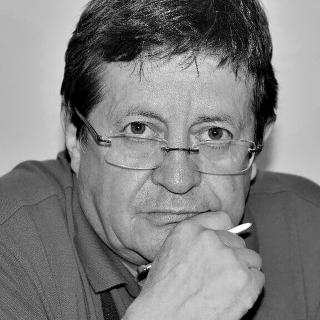
Colombia: New Smells and Colors | OP-ED
MORE IN THIS SECTION
For two centuries, white has been the color of political power in Colombia. White as a racial distinctive, of course.
During two hundred and so years of republican history, only one black man, Juan José Nieto, has been president, but his oil portrait was later modified to whiten the character, in a series of clandestine episodes that show how racism has been in this country that does not know how to make its skin not dark.
During these centuries, members of about 20 families, at most, all white, aristocratic, rich and abusive, have managed the political power. Or, rather, they did until last August 7th.
Blacks and Indians have always been marginalized from the spheres of power.
Now, political power is polychrome: there are still whites, of course, but blacks and Indians have arrived, something that the aristocracy and those who call themselves good people will never forgive President Gustavo Petro.
But, beyond this, from now on, the poor will also decide, the delegates of the offended, of those humiliated for any reason, of those trampled by the castes that thought they owned everything, including lives, and that today, displaced, ruminate and mourn their defeat.
Now, along the corridors of the Presidency, ministries and national agencies come and go Indians and blacks, and farmers and leaders of miserable shantytowns, and relatives of the disappeared and those murdered by the security forces, indoctrinated and trained with U.S. taxpayers’ money, as possibly you, who read these lines, are.
RELATED CONTENT
The Vice President of the Republic, Francia Márquez, is a Raizal black woman, a single mother, farmer leader and defender of human rights and the environment, with swamp boots and work pants. Now, a young man from her village designs and sews the splendorous dresses of pure African roots with which this woman, who has won many international awards, and recently graduated as a lawyer from a popular university in the south of Colombia, now dresses.
Gustavo Petro himself, a former guerrilla fighter, is a poor man. He lived for several years in an irregular suburb he helped build with his own hands, in a city near Bogota.
For the past few days, Colombian Indians and blacks have been working, proud of their ancestral roots and their academic training, in front of international organizations.
Political power in Colombia has changed color... and smell. The fine perfumes of the old bureaucracy still linger, but are mixed with the scent of cheap lotions.
The new officers come and go, diligent, with their typical hats, their ponchos and their traditional attire, in a bright and polychrome parade with less and less designer dresses, less fine shoes, less dazzling jewelry, less pinkies raised while drinking coffee.
It is not the new Colombia, it is the old Colombia, the one of the immense majority, the one that for centuries survived covered by the shadows of history, the anonymous one, the one that moved, fearful and sad, in the darkest hours of the night of the abusers.
It is the black and Indian Colombia, which smells of sweat and tears, but which, quietly, prepared itself for what it is doing today: relieving its corrupt abusers in peace.







LEAVE A COMMENT:
Join the discussion! Leave a comment.